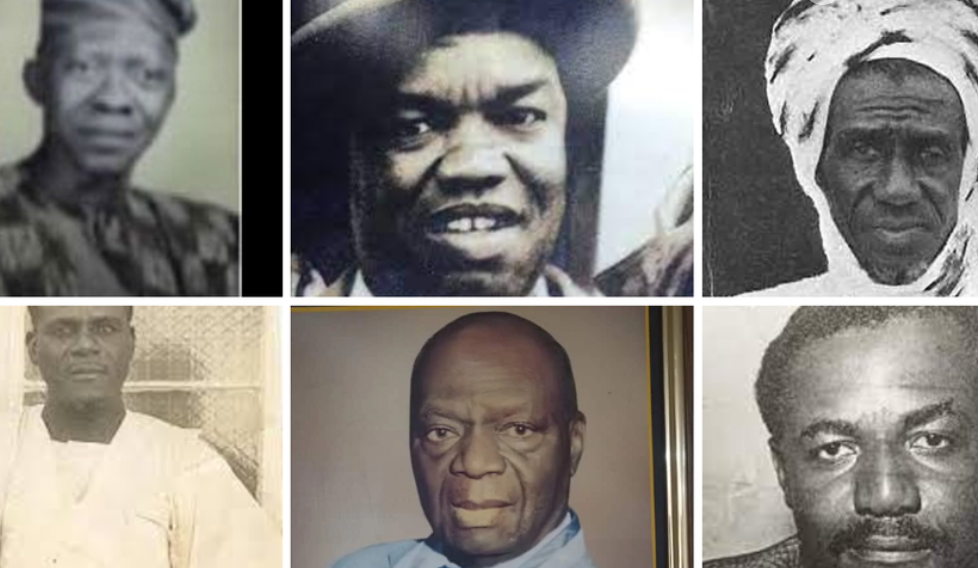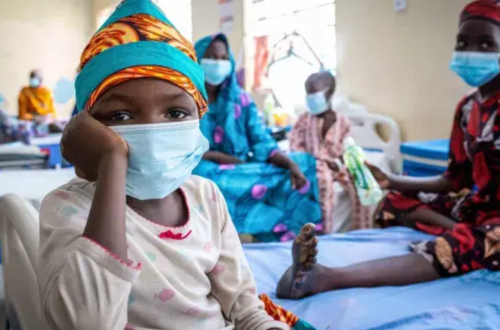
The culture of wealth creation in Nigeria didn’t begin in the 21st century, or even the 20th.
Long before independence in 1960, Nigerians were already amassing fortunes through trade, enterprise, and innovation. These early titans of commerce laid the foundation for Nigeria’s modern economy long before oil wealth.
They built their wealth through vision, trade, and relentless hard work. Their legacy lives on, earning them the title of ‘old money.’
Their names are not just in history books, but in the financial institutions, industries, and family dynasties that continue to shape Nigeria today. Here is the list below:
1. Candido Da Rocha (1860–1959))
Candido Da Rocha was born in Brazil but returned to Nigeria with his father. He made his fortune from real estate, hospitality, and water distribution. His famed home, Casa d’Agua (Water House), doubled as a water depot that supplied parts of Lagos. Da Rocha would later venture into real estate and the hospitality business. He opened The Restaurant Da Rocha, Bonanza Hotel, and Sierra Leone Deep Sea Fishing Industries Ltd.
Da Rocha was so rich that he could afford to send his dirty clothes to the laundryman in the United Kingdom, and he did this for many years. Speaking on his generosity, his 90-year-old granddaughter, Mrs. Angelica Oyediran, told SUNDAY PUNCH that
“People would come to him, crying, requesting financial assistance; from the balcony, asking how much they needed, he would throw down the money to them.”
2. Alhassan Dantata (1877–1955)
Dantata was a merchant from Kano and the grandfather of Aliko Dangote. Dantata was a giant in the groundnut and kola nut trade across West Africa. In 1929, he famously deposited 20 camel-loads of silver coins in the Bank of West Africa. He traded in groundnuts, kola, cattle, clothes, beads, precious stones, grains, ropes and other merchandise across the region. By the time of his death, he was reputed to be the richest man in British West Africa.
3. Timothy Odutola (1902–1995))
A self-made entrepreneur from Ijebu-Ode, Odutola rose from a clerk to become a pioneer industrialist. By the 1940s, he had built a business empire that included cocoa and palm oil trading, a sawmill, a cattle ranch, and factories. He later ventured into rubber production and tire manufacturing. he opened stores where he sold damasks and fish in various cities in the Western Region. He was also the first president of the Manufacturers Association of Nigeria.
4. Sir Mobolaji Bank-Anthony (1907–1991)
A Lagos-born businessman and philanthropist, Bank-Anthony built a diversified empire from trading palm oil and patent medicine to importing luxury goods and investing in shipping. Between 1923 and 1930, he worked as a junior clerk in the correspondence section of the Post and Telegraphs Department. By 1931, he went into business, travelling to Germany and England to study how to make palm oil.
Following that, he established M. de Bank Brothers to trade in palm oil and patent medicine. He was one of the first Nigerians to chair a European company and held key positions in firms like Mobil Oil and Friesland Foods. He also had stakes in Aero Contractors and once owned a charter airline. He also imported watches, clocks and pens, at a point, becoming the third largest seller of fountain pens in Nigeria after UAC and the United Trading Company.
5. Sir Louis Odumegwu Ojukwu (1908–1966)
Father of the Biafran warlord Chukwuemeka Odumegwu-Ojukwu, Louis was Nigeria’s first recorded billionaire. His business interests spanned transport, textiles, cement, banking, and import/export. He served as president of the African Continental Bank and was a founding member of the Nigerian Stock Exchange. Knighted by Queen Elizabeth II, he owned the Rolls-Royce used during her visit to Nigeria.
Described by TIME magazine in 1965 as one of Nigeria’s richest men, Edu co-founded the first indigenous insurance company with Talabi Braithwaite. A savvy investor, he held shares in Nigerian Breweries, BP, Bata, and Lever Brothers. At 54, he had built a fleet of eight oil tankers. He was also on the boards of Blackwood Hodge Nigeria, Haden Nigeria, Glaxo Nigeria and the Federal Industrial Loans from 1954 to 1959. He was also active in politics, representing Epe at the Federal House of Representatives.
7. Sanusi Dantata (1919–1997)
As the heir to Alhassan Dantata, his father, Dantata, left him a will that amounted to over $12,000, though he was already a wealthy man at the time. Sanusi Dantata is the grandfather of Africa’s richest man, and he built his own fortune. In the 1960s, he was Nigeria’s largest licensed groundnut buyer. He operated a vast trade network involving over 200 agents and a tiered system of traders and producers. Known for his philanthropy, he reportedly spent £40,000 annually supporting the less privileged.
8. Emmanuel Akwiwu (1924-2011)
He owned a company that had 70 vehicles, hauled oil rigs and supplies for British Petroleum Ltd. He was a federal lawmaker in the House of Representatives between 1954 and 1964. He was also a deputy speaker of the Eastern Assembly. Akwiwu was born in Port Harcourt, Rivers State, and studied at Cambridge University between 1945 and 1950. He returned to the country in 1951 and became a solicitor. He founded Akwiwu Motors in the 1960s. He was on the board of the Nigerian Ports Authority when established in 1954.
Born in 1902, he was described as Nigeria’s most prominent baker in the mid-1960s and was featured in Time magazine’s list of millionaires in Nigeria in 1965. Trained as a teacher, Tuyo left the profession to work for 24 years in the Nigerian Railway Corporation, the British Bank of West Africa and the Ministry of Commerce. He retired in 1953.
After Mr Ade Tuyo retired, he sensed the potential in the bakery business. This intuition was partly fostered by the support given to indigenous entrepreneurs by the federal government. He pursued a successful loan application from the Federal Loans Board. He started De Facto Works, a catering and Bakery company. By 1969, he was the largest bakery service in the country.
10. Talabi Braithwaite (1928–2011))
Though younger than most on this list, Braithwaite co-founded the African Alliance Insurance Company in 1960 and was already a major player in Nigeria’s financial services sector before independence. He was the first African to pass the examination to become an associate of the Chartered Insurance Institute, London, in 1951. Between 1963 and 1966, he served as the first indigenous president of the Insurance Institute of Nigeria. He was also the first president of the Nigerian Corporation of Insurance Brokers.


)
)
)




